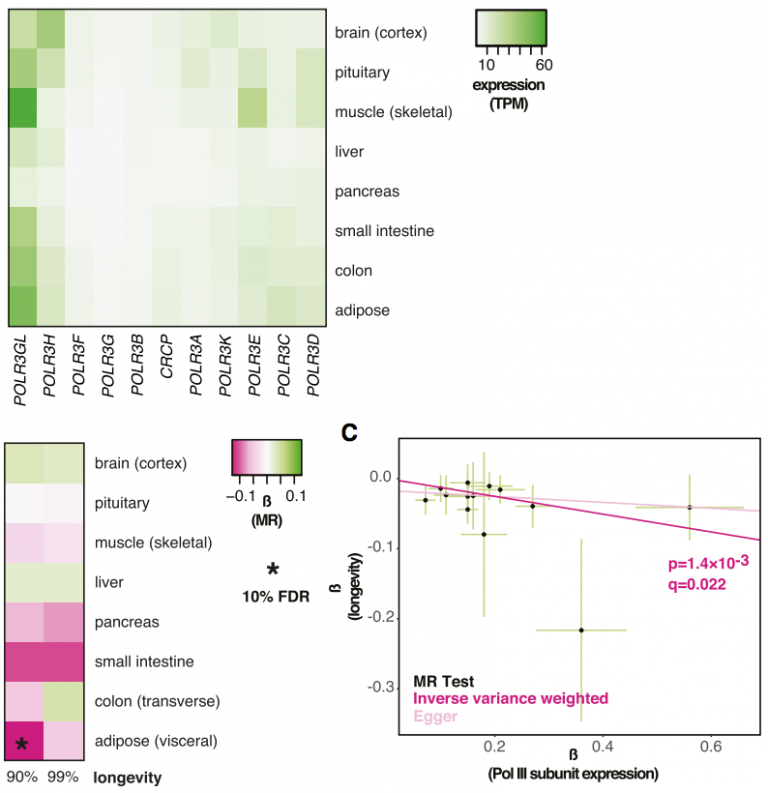Mendelian randomization analyses implicate biogenesis of translation machinery in human aging
27 January 2022

Reduced provision of protein translation machinery promotes healthy aging in a number of animal models. In humans, however, inborn impairments in translation machinery are a known cause of several developmental disorders, collectively termed ribosomopathies. Here, we use casual inference approaches in genetic epidemiology to investigate whether adult, tissue-specific biogenesis of translation machinery drives human aging. We assess naturally occurring variation in the expression of genes encoding subunits specific to the two RNA polymerases (Pols) that transcribe ribosomal and transfer RNAs, namely Pol I and III, and the variation in expression of ribosomal protein (RP) genes, using Mendelian randomization. We find each causally associated with human longevity (β =−0.15 ± 0.047, P= 9.6 × 10−4 , q= 0.015; β=−0.13 ± 0.040, P = 1.4 × 10−3 , q = 0.023; β=−0.048 ± 0.016, P= 3.5 × 10−3 , q = 0.056, respectively), and this does not appear to be mediated by altered susceptibility to a single disease. We find that reduced expression of Pol III, RPs, or Pol I promotes longevity from different organs, namely visceral adipose, liver, and skeletal muscle, echoing the tissue specificity of ribosomopathies. Our study shows the utility of leveraging genetic variation in expression to elucidate how essential cellular processes impact human aging. The findings extend the evolutionary conservation of protein synthesis as a critical process that drives animal aging to include humans.
Great collaborative effort from Sara Javidnia, Karoline Kuchenbäcker, Stephen Cranwell, Jennifer Tullet, Colin Selman, Stefanie H. Mueller and Nazif Alic.
With data from Joris Deelen and GTExPortal, thanks to BBSRC, Wellcome Trust and Persia Ed Foundation.
https://genome.cshlp.org/content/early/2022/01/10/gr.275636.121.full.pdf+html
 Close
Close

